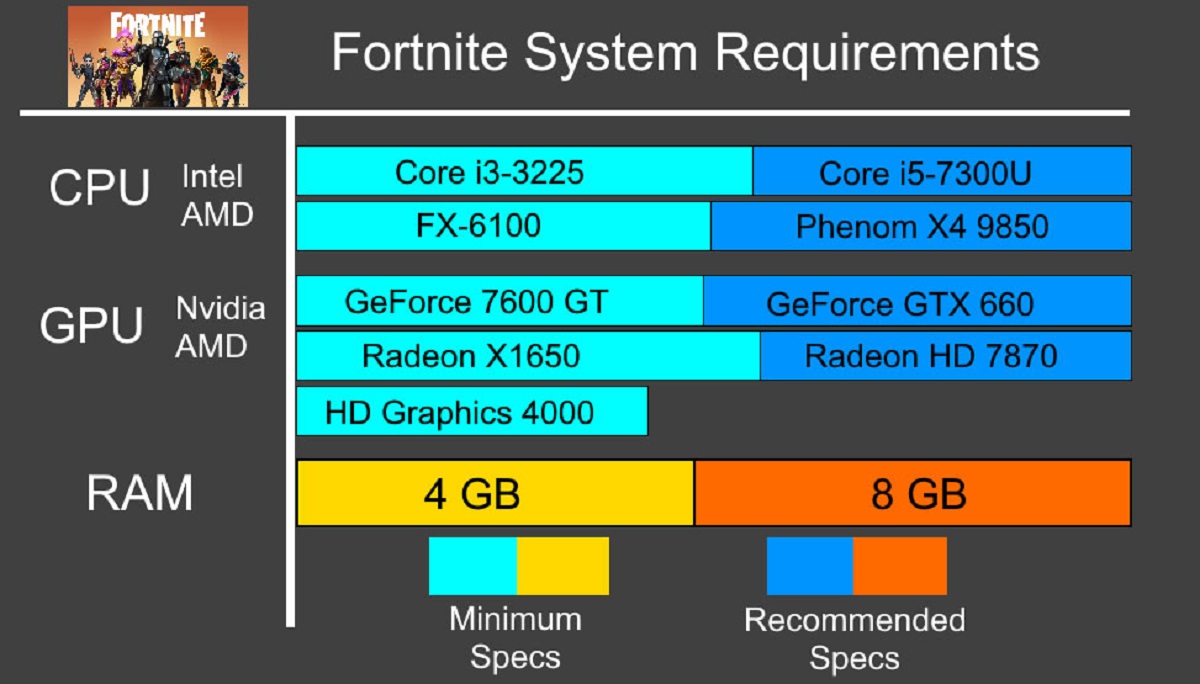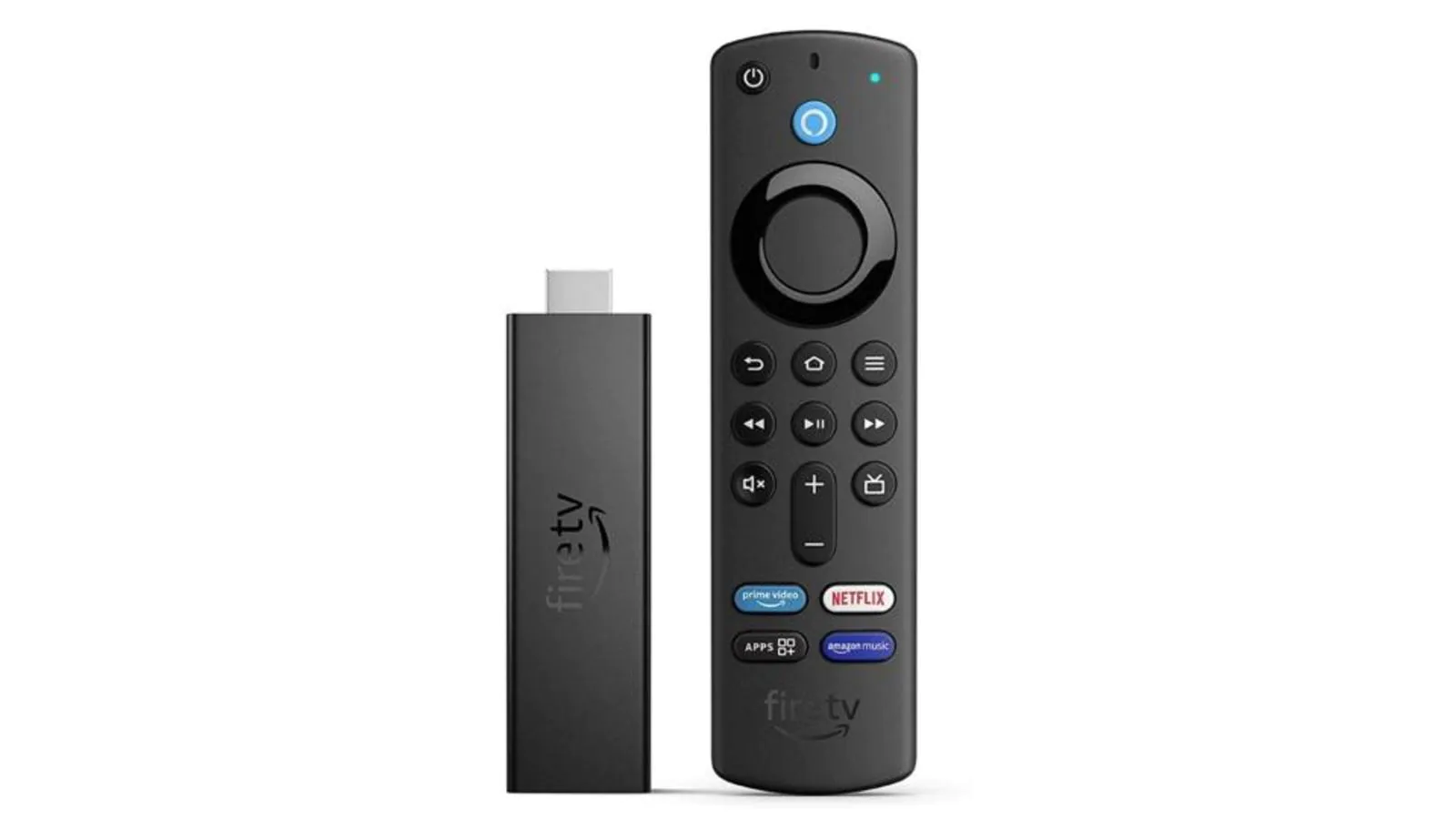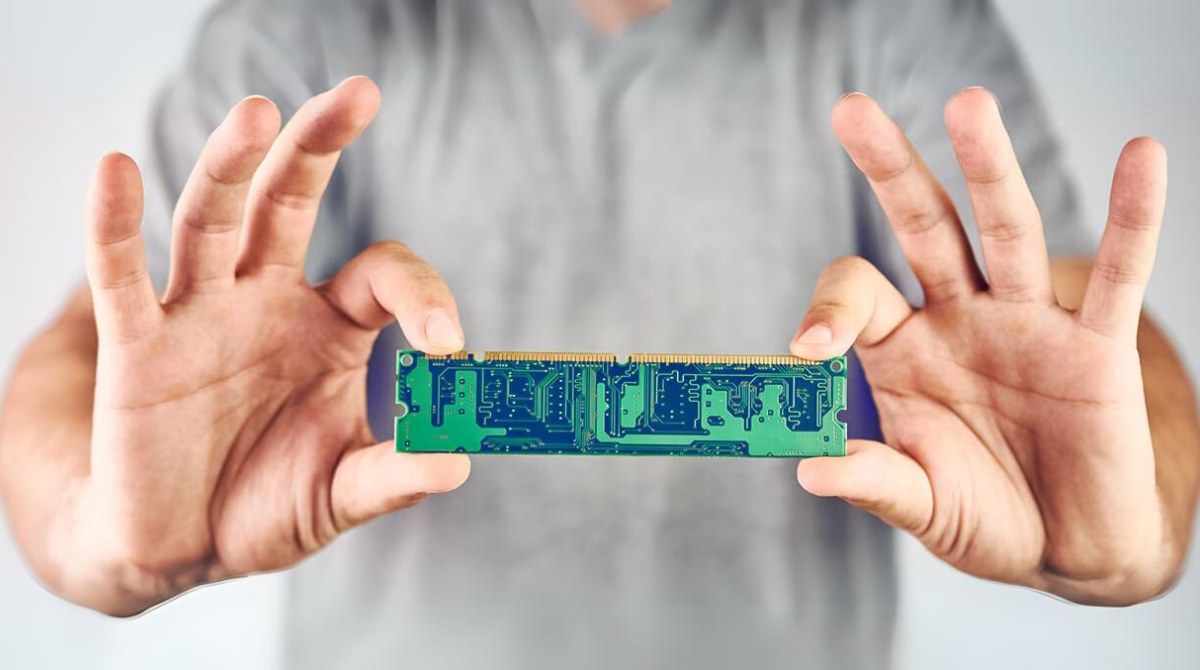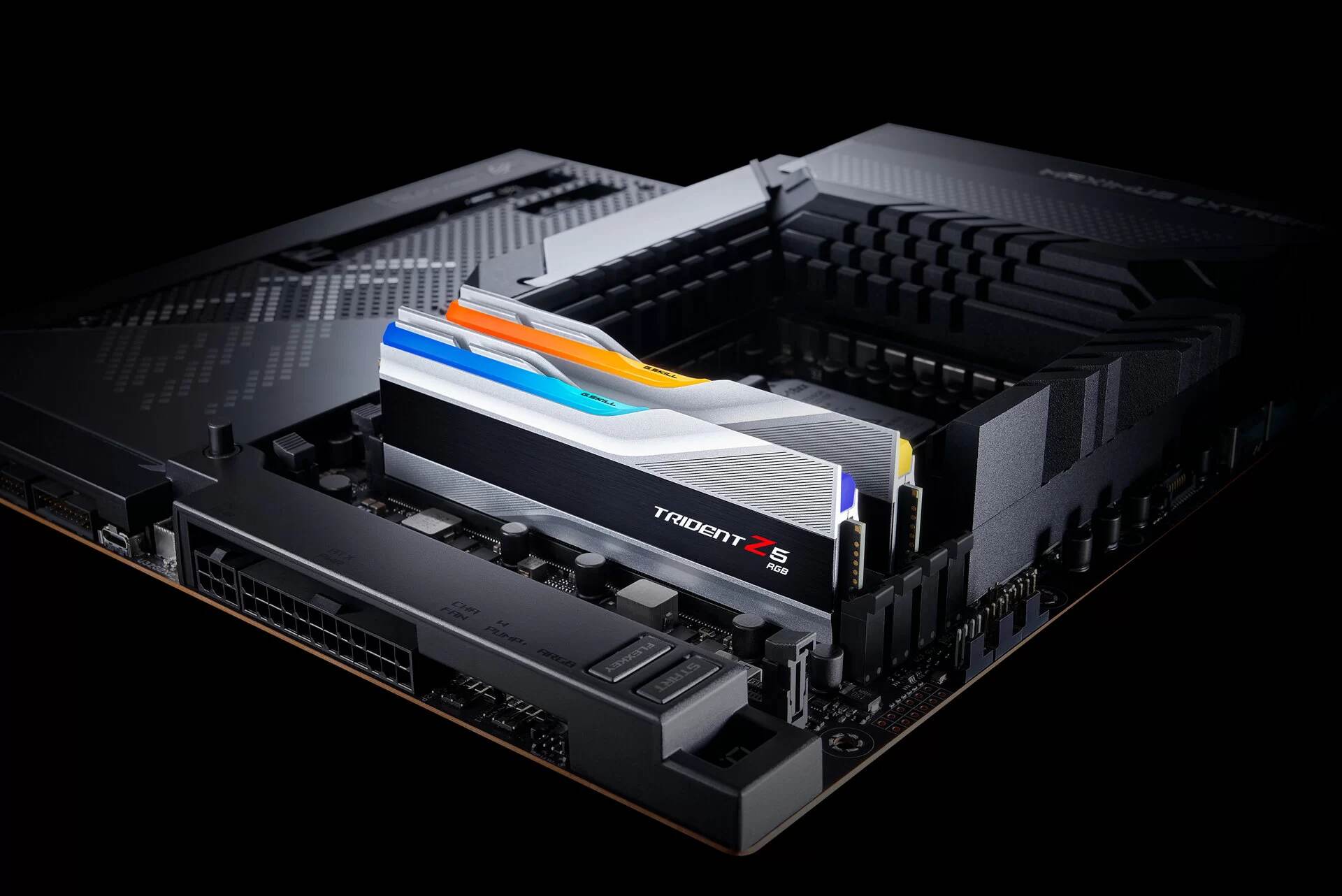Introduction
When it comes to gaming, various components play a crucial role in delivering a smooth and immersive experience. One such component is RAM, or Random Access Memory. RAM is an essential part of any computer system and plays a vital role in the overall performance, especially in gaming.
RAM serves as a temporary storage for data that the computer needs to access quickly. It allows the processor to retrieve and store information rapidly, which directly impacts the speed and fluidity of gaming applications. In simpler terms, the more RAM a gaming system has, the better it can handle and process large amounts of data, resulting in improved performance and gameplay.
Understanding the significance of RAM in gaming is essential for both casual and hardcore gamers. It helps determine the level of detail, speed, and responsiveness of games. Whether you’re engaging in intense multiplayer battles, exploring vast open-world environments, or enjoying graphically demanding titles, RAM plays a significant role in providing a seamless gaming experience.
In this article, we will delve into the world of RAM and explore its importance in gaming. We will discuss how RAM works, the specific aspects of gaming it affects, and how it relates to system requirements. Additionally, we will touch upon the topic of upgrading RAM for gaming and offer some insights into optimizing your gaming setup.
So, if you’re curious to know what role RAM plays in your gaming experience and how it can enhance your gameplay, read on to discover the impact of RAM on gaming performance and how you can make the most of it.
RAM Explained
Before we delve into the role of RAM in gaming, it’s crucial to understand what RAM is and how it functions. RAM, or Random Access Memory, is a type of computer memory that provides temporary storage for data that the computer needs to access quickly. Unlike permanent storage, such as hard drives or solid-state drives (SSDs), RAM is volatile memory, meaning it is only accessible when the computer is powered on.
RAM is like the short-term memory of your computer. It stores data that your processor needs to access frequently, allowing for quick retrieval and processing. When you launch a game, a portion of it gets loaded into the RAM, including game assets, textures, and other data required for smooth gameplay. As you progress through the game, additional data is continuously loaded into the RAM to ensure swift execution of in-game actions and events.
The size of RAM is measured in gigabytes (GB). The more RAM you have, the more data your computer can store and access quickly, leading to improved performance. However, it’s important to note that RAM alone does not determine the overall speed and performance of a computer system. The processor, graphics card, and other components also play a significant role.
RAM operates at a much faster speed compared to traditional storage devices like hard drives or SSDs. This speed allows the processor to quickly retrieve and store data, reducing the overall loading times and latency in games. It also enables the computer to run multiple applications simultaneously without experiencing slowdowns or crashes.
It’s important to understand that RAM is different from storage capacity. While hard drives and SSDs provide long-term storage for files, documents, and applications, RAM is focused on providing fast and temporary access to data while your computer is running. Once you power off or restart your computer, the information stored in RAM is erased.
To summarize, RAM is a crucial component in any computer system, including gaming setups. It acts as temporary storage for data that the computer needs to access quickly, ensuring smooth and efficient execution of games and other applications. By having an adequate amount of RAM, you can enhance the overall performance and responsiveness of your gaming experience.
The Role of RAM in Gaming
RAM plays a significant role in gaming, influencing various aspects of the overall gaming experience. Here are some key areas where RAM affects gaming performance:
1. Game Loading Times: When you launch a game, it needs to load various assets, textures, and data into the RAM for quick access. Having more RAM allows games to load faster, reducing waiting times and getting you into the action quicker.
2. Smooth Gameplay: RAM helps in maintaining a smooth and uninterrupted gaming experience. It allows the game to store and access necessary data in real-time, providing seamless transitions, consistent frame rates, and reduced stuttering or lag.
3. Graphics Quality: RAM capacity can impact the level of detail and texture quality in games. Higher RAM allows for the smooth rendering of complex textures and detailed environments, resulting in sharper visuals and a more immersive gaming experience.
4. Multitasking: Gaming often involves running multiple applications simultaneously, such as voice chat programs, streaming software, or web browsers. Sufficient RAM allows your computer to handle these tasks without a significant impact on game performance.
5. Level Streaming: Many modern games utilize level streaming techniques, where portions of the game world are loaded and unloaded in real-time based on player movement. Sufficient RAM ensures a seamless transition between different areas of the game without noticeable loading pauses.
6. Modding and User-Generated Content: Games that support mods or user-generated content often require additional RAM to run smoothly. Mods can introduce new assets, scripts, or gameplay mechanics, which increase the RAM usage. Having enough RAM allows for a more immersive and customizable gaming experience.
In a nutshell, RAM plays a crucial role in delivering an optimal gaming experience. It enables faster game loading times, smoother gameplay, better graphics quality, efficient multitasking, seamless level streaming, and enhanced support for mods and user-generated content. Consider RAM as a vital component in optimizing your gaming setup for improved performance and enjoyment.
Game Performance and RAM
RAM has a direct impact on game performance and can determine the smoothness, responsiveness, and overall quality of your gaming experience. Here are some specific ways in which RAM influences game performance:
1. Frame Rates: One of the crucial factors in game performance is the frame rate, which refers to the number of frames displayed per second. Insufficient RAM can lead to lower frame rates, causing gameplay to appear choppy and less fluid. Adequate RAM allows for faster data processing, ensuring smoother frame rates and a more immersive gaming experience.
2. Texture Loading and Streaming: Textures are vital in creating the visual look and feel of a game. Insufficient RAM can result in longer loading times for textures or inability to load high-resolution textures, leading to blurry or low-quality visuals. With enough RAM capacity, games can load and stream textures seamlessly, enhancing the overall visual quality.
3. Open-World Environments: Many modern games feature expansive open-world environments with vast landscapes and detailed surroundings. RAM plays a crucial role in rendering these environments efficiently. Higher RAM allows for smoother transitions between different areas of the game world, reducing lag and ensuring a more immersive gameplay experience.
4. Virtual Reality (VR) Gaming: Virtual Reality gaming places additional demands on system resources, including RAM. VR games require a significant amount of processing power and data access to create a truly immersive virtual environment. Insufficient RAM can lead to performance issues and potential motion sickness due to latency. Sufficient RAM capacity ensures a smooth and comfortable VR gaming experience.
5. Multiplayer and Online Gaming: Online gaming involves interactions with other players in real-time. Insufficient RAM can negatively impact multiplayer gaming performance, leading to lag, connection issues, and delays in character actions or response time. Having enough RAM allows for seamless online gameplay without compromising the overall performance.
It’s important to note that while RAM is a crucial factor in game performance, it is not the only component that matters. A powerful processor, a capable graphics card, and other hardware components also contribute to overall game performance. However, having adequate RAM ensures that your system can handle the demands of modern games and deliver an optimal gaming experience.
System Requirements and RAM
RAM plays a significant role in determining the system requirements for running modern games smoothly. When game developers specify system requirements, they often include a recommended amount of RAM for optimal performance. Here’s how RAM relates to system requirements:
Minimum RAM Requirements: The minimum RAM requirement specified by game developers represents the bare minimum amount of RAM needed to run the game. While it allows the game to run, it may not provide the best performance or allow for multitasking effectively. It is recommended to have more than the minimum RAM requirement for a smoother gaming experience.
Recommended RAM: The recommended RAM specified by game developers indicates the amount of RAM required for optimal performance. Meeting or exceeding the recommended RAM ensures that the game runs smoothly, with minimal lag and faster loading times. It also allows for multitasking, such as running background processes, without impacting game performance.
Future-Proofing: It’s worth considering that the recommended RAM requirements may change with newer games or game updates. As newer games become more demanding, having a higher amount of RAM can future-proof your gaming setup and ensure that you can enjoy upcoming titles without upgrading your hardware frequently.
Additionally, while RAM is an important component for gaming, it should be complemented by other hardware components as well. A powerful processor, a capable graphics card, and sufficient storage are also crucial for an optimal gaming experience. Strengthening these areas in addition to having ample RAM will enable your system to meet or exceed the recommended system requirements for a wide range of games.
It’s important to note that the RAM requirements may also vary based on a game’s genre, complexity, and the presence of additional factors such as multiplayer modes or high-resolution graphics. Checking the system requirements provided by game developers and matching or exceeding the recommended RAM is essential to ensure smooth gameplay and prevent potential performance issues.
Overall, RAM plays a vital role in meeting the system requirements for running modern games. Having sufficient RAM capacity ensures that your system can handle the demands of games, deliver smooth performance, and provide an enjoyable gaming experience.
Upgrading RAM for Gaming
If you’re looking to enhance your gaming experience, upgrading your RAM can be a cost-effective and impactful solution. Here are some considerations and steps to follow when upgrading your RAM for gaming:
1. Determine Your Current RAM: Before upgrading, it’s essential to determine the type and amount of RAM currently installed in your system. You can check your computer’s specifications or use system information tools to gather this information, including RAM capacity and speed.
2. Check Compatibility: Not all RAM modules are compatible with every computer. Check your motherboard’s specifications and ensure that the RAM modules you plan to purchase are compatible with your system. Pay attention to factors such as module type (DDR3, DDR4, etc.), speed, and maximum capacity supported.
3. Calculate Your Desired RAM Capacity: Consider the games you want to play and their recommended RAM requirements. Determine the amount of RAM needed to meet or exceed these requirements. Aim for a capacity that allows for smooth gameplay, multitasking, and potential future game releases. Generally, a minimum of 8GB is recommended for gaming, but upgrading to 16GB or more can provide even better performance.
4. Purchase the RAM: Once you’ve determined the type and capacity of RAM you need, purchase the required modules from a trusted retailer. Ensure that you buy from reputable brands to guarantee the reliability and quality of the RAM modules. Consider factors like warranty, customer reviews, and pricing when making your purchase.
5. Install the New RAM: Shut down your computer and unplug it from the power source. Open the computer case and locate the RAM slots on the motherboard. Insert the new RAM modules into the available slots, making sure they are properly aligned and seated firmly. Consult your motherboard manual or online resources if you need assistance in identifying the RAM slots and installing the modules correctly.
6. Test and Verify: After installing the new RAM, power on your computer and ensure that it recognizes the upgraded memory. Check the system information or use diagnostic software to verify that the new RAM capacity is detected correctly. Run benchmark tests or play your favorite games to experience the improved performance firsthand.
7. Troubleshooting: In rare cases, you may encounter issues after upgrading your RAM, such as system instability or compatibility problems. If this occurs, reseat the RAM modules, update your motherboard’s BIOS, or seek assistance from technical support or a professional if needed.
By upgrading your RAM, you can significantly enhance the performance of your gaming system. The additional RAM capacity allows for smoother gameplay, faster load times, improved multitasking, and better overall system responsiveness. Consider upgrading your RAM as a cost-effective way to optimize your gaming experience without having to replace the entire system.
Conclusion
RAM is a crucial component in gaming setups, playing a pivotal role in the overall performance and experience. It serves as a temporary storage for data that the computer needs to access quickly, ensuring smooth gameplay, faster loading times, and seamless multitasking. RAM affects various aspects of gaming, including frame rates, texture loading, open-world environments, and online multiplayer experiences.
Understanding the importance of RAM in gaming allows you to make informed decisions when it comes to system requirements and upgrading your hardware. Meeting or exceeding the recommended RAM specifications for games ensures optimal performance and the ability to enjoy the latest titles without compromise.
When upgrading your RAM, consider factors such as compatibility, desired RAM capacity, and the specific needs of the games you play. Ensure that your selected RAM modules are compatible with your motherboard and provide enough capacity for smooth gameplay and multitasking.
By upgrading your RAM, you can unlock a world of improved gaming performance. With faster load times, smoother frame rates, and enhanced graphical experiences, your gaming sessions will become more immersive and enjoyable. Always remember to pair your upgraded RAM with other capable hardware components, such as a powerful processor and graphics card, for a well-rounded gaming setup.
So, whether you’re engaging in intense multiplayer battles, exploring vast open-world environments, or enjoying graphically demanding titles, RAM stands as a crucial element in optimizing the gaming experience. Upgrade your RAM to elevate your gaming setup and unlock the full potential of your favorite games.

























